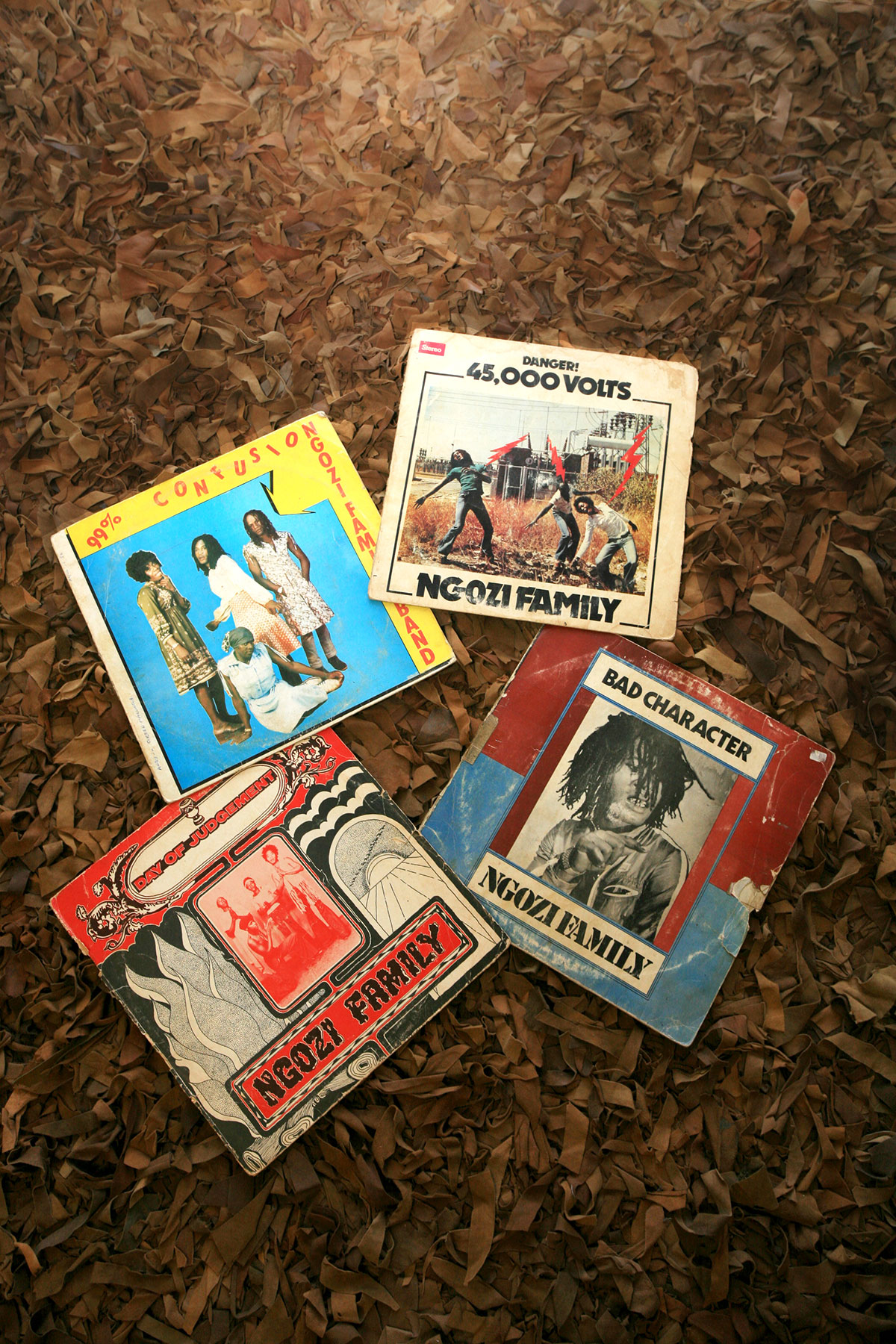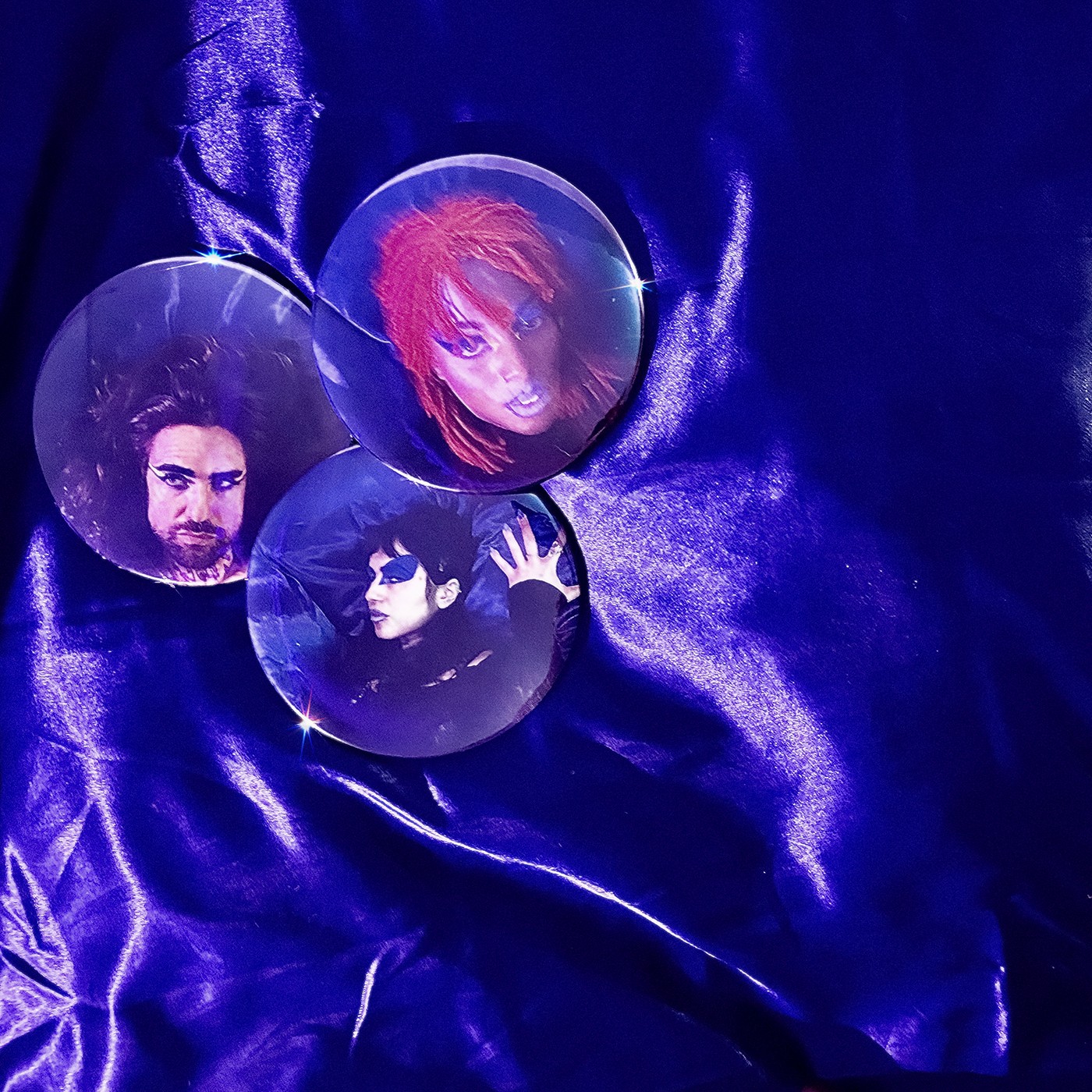







Column: Music
Now-Again Dusts Off the Stacks
My obsession with the Zamrock movement that occurred in the small (by the world’s standards) cities in the Central African nation of Zambia in the mid 1970s started with the giants of the scene: WITCH, whose entire
_oeuvre_
I’ve reissued on Now-Again in conjunction with WITCH’s last surviving member, the band’s leader and singer Emmanuel “Jagari Chanda.” WITCH created a range of music, from bluesy, Rolling Stones influenced garage rock, to proper psychedelic funk, to something you might call afro-rock—if that term meant something more akin to the music of Lagos’s BLO rather than London’s Osibisa.
I reached Jagari through Rikki Ililonga, another one of Zamrock’s founding fathers, and the leader of the Musi-O-Tunya band. Both M-O-T and WITCH vie for “first Zamrock album issued,” as WITCH privately issued their barnstorming _Introduction_ in Zambia at around the same time that M-O-T issued their more sophisticated _Wings of Africa_ in Kenya. I naturally asked both Rikki and Jagari to find me any Zamrock records they could—not just for my own personal edification, but in the hopes that I could help both of them make some extra money sourcing some of the rarest of the rare garage, psychedelic, and progressive rock records from the last place they remain: in the private collections of a precious few in their homeland.
It wasn’t but a month after Rikki first returned to Zambia from his current home in Denmark that I got my first packages—one from he, the other from Jagari. Both contained records by the late Paul Dobson Nyirongo, better known by his stage name, Paul Ngozi. While I’d heard some Ngozi family music–by this time, both his _45,000 Volts_ album and _My Ancestors_, the first album by his drummer Chrissy Zebby Tembo, had been bootlegged, and a Canadian friend—whose family spent time in AIDS relief in one of the countries most ravaged by the disease—had sent me a copy of his first single on Zambia Music Parlour, I simply wasn’t prepared to hear his first album _Day of Judgement_ in its entirety. It’s one of those rare records, completely out of time and place and yet ahead of itself; it was released in 1975 in Zambia, yet you’d swear it must have come out of some city in middle-America five years prior, a herald of punk music to come. Simply put: it’s the kind of record that you hoped the solitary single by Detroit’s Death would sound like: just straight attitude, chunky drums, cackling low-fidelity, tons of fuzz guitar and nothing resembling anything “prog” in sight.
That moment—as sublime as any record collector could ever hope to happen upon—sent me on a furious chase to find any and all Paul Ngozi and Ngozi Family albums and 7-inches as I could find. Some five years later, I’m closing in on an anthology of his work for issue on Now-Again. It’s not been easy as Paul and every member of his band passed in the ’80s and ’90s, and direct links to his music—and the information behind it—are scarce. The situation is compounded by the multiple issues of most of his albums—sometimes with different covers, sometimes on different labels altogether (in one of my favorite instances, Paul bootlegged his own _45,000 Volts_ album—recorded first for Chris Editions—on his own label, Sound Projekt, and hand stamped the original record’s jackets with a “Volume II!”). But the end result shall be worth it, as this music is as singular as it gets—I’ve honestly never heard anything like it.
Written by Eothen Alapatt
 

 

 

 
Column: Music
Now-Again Dusts Off the Stacks
My obsession with the Zamrock movement that occurred in the small (by the world’s standards) cities in the Central African nation of Zambia in the mid 1970s started with the giants of the scene: WITCH, whose entire
_oeuvre_
I’ve reissued on Now-Again in conjunction with WITCH’s last surviving member, the band’s leader and singer Emmanuel “Jagari Chanda.” WITCH created a range of music, from bluesy, Rolling Stones influenced garage rock, to proper psychedelic funk, to something you might call afro-rock—if that term meant something more akin to the music of Lagos’s BLO rather than London’s Osibisa.
I reached Jagari through Rikki Ililonga, another one of Zamrock’s founding fathers, and the leader of the Musi-O-Tunya band. Both M-O-T and WITCH vie for “first Zamrock album issued,” as WITCH privately issued their barnstorming _Introduction_ in Zambia at around the same time that M-O-T issued their more sophisticated _Wings of Africa_ in Kenya. I naturally asked both Rikki and Jagari to find me any Zamrock records they could—not just for my own personal edification, but in the hopes that I could help both of them make some extra money sourcing some of the rarest of the rare garage, psychedelic, and progressive rock records from the last place they remain: in the private collections of a precious few in their homeland.
It wasn’t but a month after Rikki first returned to Zambia from his current home in Denmark that I got my first packages—one from he, the other from Jagari. Both contained records by the late Paul Dobson Nyirongo, better known by his stage name, Paul Ngozi. While I’d heard some Ngozi family music–by this time, both his _45,000 Volts_ album and _My Ancestors_, the first album by his drummer Chrissy Zebby Tembo, had been bootlegged, and a Canadian friend—whose family spent time in AIDS relief in one of the countries most ravaged by the disease—had sent me a copy of his first single on Zambia Music Parlour, I simply wasn’t prepared to hear his first album _Day of Judgement_ in its entirety. It’s one of those rare records, completely out of time and place and yet ahead of itself; it was released in 1975 in Zambia, yet you’d swear it must have come out of some city in middle-America five years prior, a herald of punk music to come. Simply put: it’s the kind of record that you hoped the solitary single by Detroit’s Death would sound like: just straight attitude, chunky drums, cackling low-fidelity, tons of fuzz guitar and nothing resembling anything “prog” in sight.
That moment—as sublime as any record collector could ever hope to happen upon—sent me on a furious chase to find any and all Paul Ngozi and Ngozi Family albums and 7-inches as I could find. Some five years later, I’m closing in on an anthology of his work for issue on Now-Again. It’s not been easy as Paul and every member of his band passed in the ’80s and ’90s, and direct links to his music—and the information behind it—are scarce. The situation is compounded by the multiple issues of most of his albums—sometimes with different covers, sometimes on different labels altogether (in one of my favorite instances, Paul bootlegged his own _45,000 Volts_ album—recorded first for Chris Editions—on his own label, Sound Projekt, and hand stamped the original record’s jackets with a “Volume II!”). But the end result shall be worth it, as this music is as singular as it gets—I’ve honestly never heard anything like it.
Written by Eothen Alapatt

Column: Music
Now-Again Dusts Off the Stacks
My obsession with the Zamrock movement that occurred in the small (by the world’s standards) cities in the Central African nation of Zambia in the mid 1970s started with the giants of the scene: WITCH, whose entire
_oeuvre_
I’ve reissued on Now-Again in conjunction with WITCH’s last surviving member, the band’s leader and singer Emmanuel “Jagari Chanda.” WITCH created a range of music, from bluesy, Rolling Stones influenced garage rock, to proper psychedelic funk, to something you might call afro-rock—if that term meant something more akin to the music of Lagos’s BLO rather than London’s Osibisa.
I reached Jagari through Rikki Ililonga, another one of Zamrock’s founding fathers, and the leader of the Musi-O-Tunya band. Both M-O-T and WITCH vie for “first Zamrock album issued,” as WITCH privately issued their barnstorming _Introduction_ in Zambia at around the same time that M-O-T issued their more sophisticated _Wings of Africa_ in Kenya. I naturally asked both Rikki and Jagari to find me any Zamrock records they could—not just for my own personal edification, but in the hopes that I could help both of them make some extra money sourcing some of the rarest of the rare garage, psychedelic, and progressive rock records from the last place they remain: in the private collections of a precious few in their homeland.
It wasn’t but a month after Rikki first returned to Zambia from his current home in Denmark that I got my first packages—one from he, the other from Jagari. Both contained records by the late Paul Dobson Nyirongo, better known by his stage name, Paul Ngozi. While I’d heard some Ngozi family music–by this time, both his _45,000 Volts_ album and _My Ancestors_, the first album by his drummer Chrissy Zebby Tembo, had been bootlegged, and a Canadian friend—whose family spent time in AIDS relief in one of the countries most ravaged by the disease—had sent me a copy of his first single on Zambia Music Parlour, I simply wasn’t prepared to hear his first album _Day of Judgement_ in its entirety. It’s one of those rare records, completely out of time and place and yet ahead of itself; it was released in 1975 in Zambia, yet you’d swear it must have come out of some city in middle-America five years prior, a herald of punk music to come. Simply put: it’s the kind of record that you hoped the solitary single by Detroit’s Death would sound like: just straight attitude, chunky drums, cackling low-fidelity, tons of fuzz guitar and nothing resembling anything “prog” in sight.
That moment—as sublime as any record collector could ever hope to happen upon—sent me on a furious chase to find any and all Paul Ngozi and Ngozi Family albums and 7-inches as I could find. Some five years later, I’m closing in on an anthology of his work for issue on Now-Again. It’s not been easy as Paul and every member of his band passed in the ’80s and ’90s, and direct links to his music—and the information behind it—are scarce. The situation is compounded by the multiple issues of most of his albums—sometimes with different covers, sometimes on different labels altogether (in one of my favorite instances, Paul bootlegged his own _45,000 Volts_ album—recorded first for Chris Editions—on his own label, Sound Projekt, and hand stamped the original record’s jackets with a “Volume II!”). But the end result shall be worth it, as this music is as singular as it gets—I’ve honestly never heard anything like it.
Written by Eothen Alapatt











.jpg)






